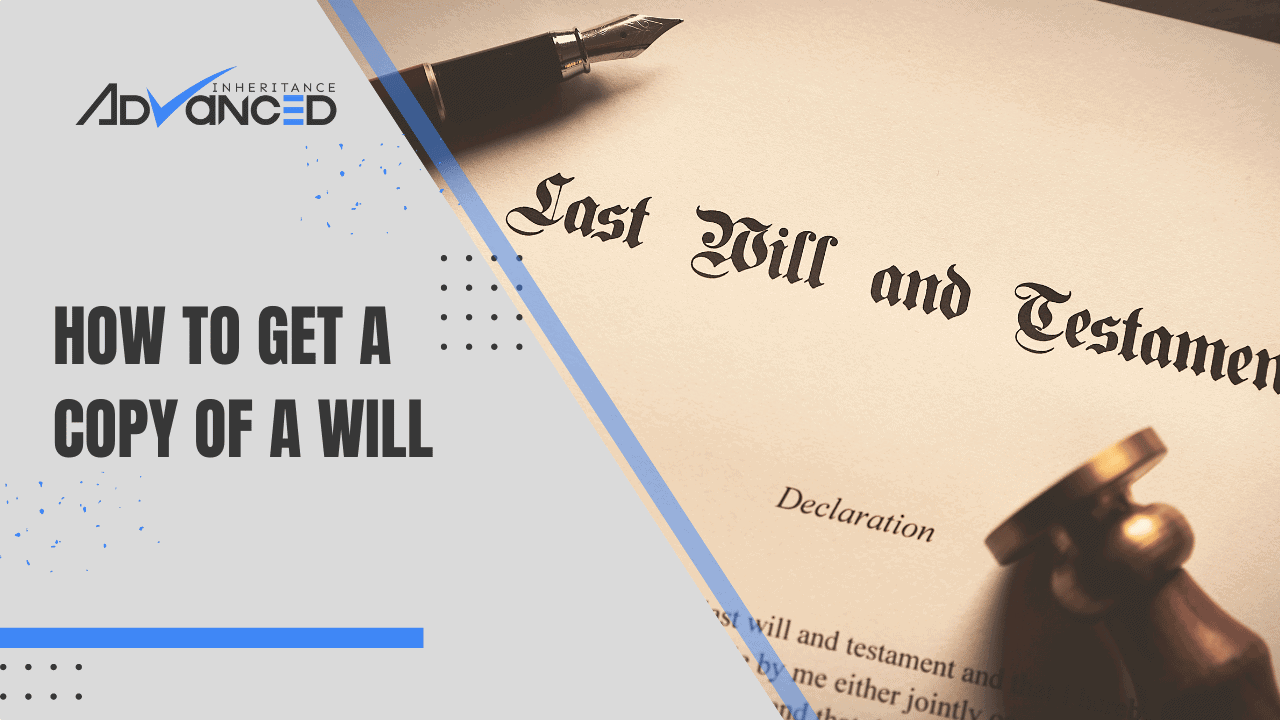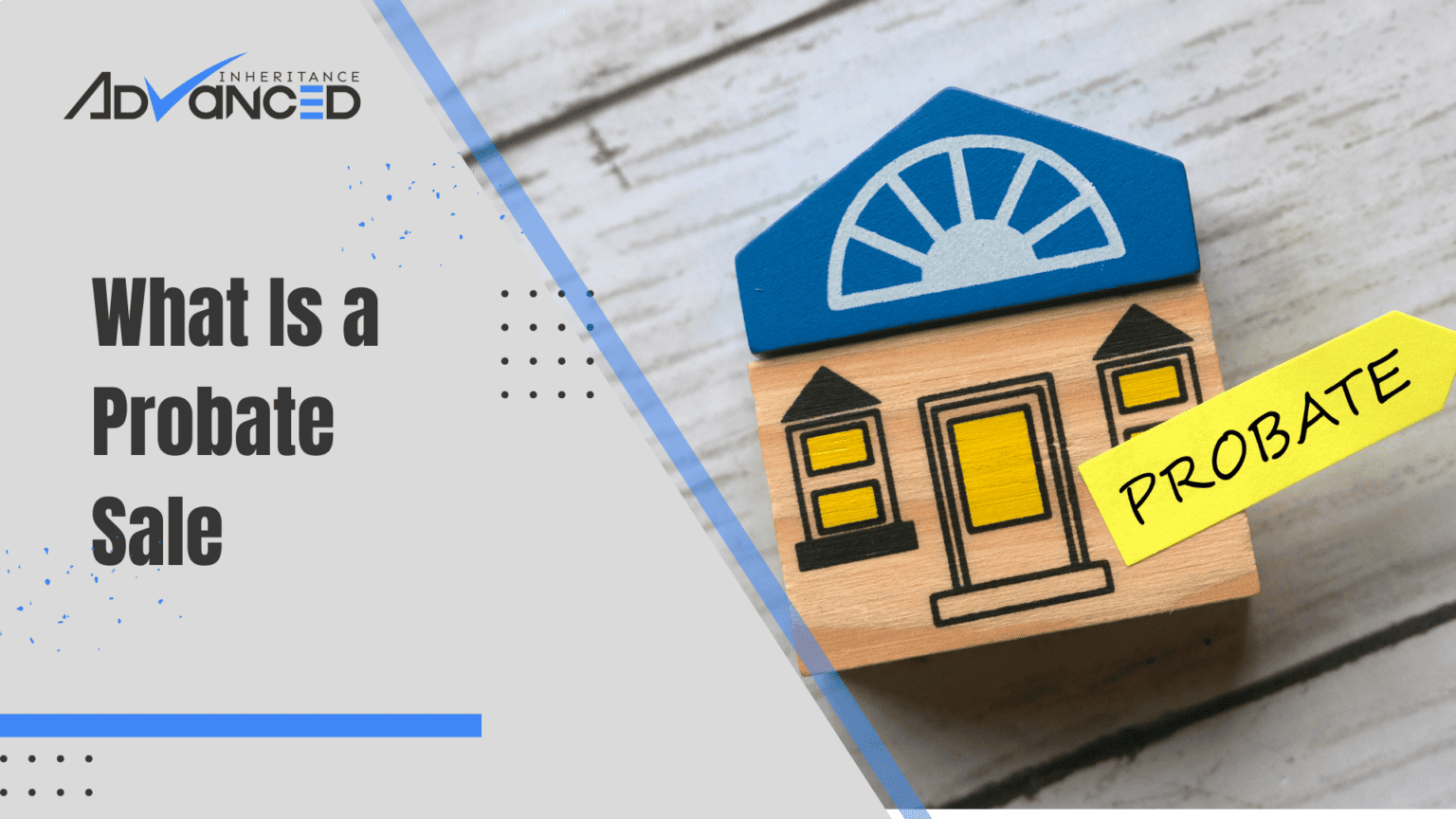Losing a spouse is an immeasurable loss that leaves a void in one’s heart. The grief and sorrow that envelop you during this time are often accompanied by a whirlwind of responsibilities and decisions that need to be made. Among these, understanding and navigating the legal aspects of inheritance can be particularly daunting. When you’re mourning the loss of your life partner, the last thing you want to grapple with is the labyrinth of laws and regulations surrounding what you are entitled to inherit. However, it is crucial to be well-informed and take necessary actions to secure your future.This article aims to be your guiding light through this complex journey.
Whether your husband left a will, the nature of the assets involved, or the laws of your state, we will delve into the essential information you need to know. We will also explore the probate process, the role of wills and trusts, and various scenarios that might affect your entitlements. Let’s take the first step together in unraveling the legal intricacies of inheritance after the loss of a spouse.
Understanding Legal Terms
Before we delve into the intricacies of inheritance, it’s important to familiarize yourself with some key legal terms that you will encounter throughout this process. Having a clear understanding of these terms will empower you to make informed decisions.
Definitions of Key Terms
- Probate: Probate is a legal process through which a deceased person’s estate is properly distributed to heirs and designated beneficiaries, and any debt owed to creditors is paid off. It usually involves proving in court that a deceased person’s will is valid, identifying and inventorying the deceased person’s property, and having the property appraised.
- Testate: When a person dies and leaves behind a valid will, their estate is said to be “testate”. This means that the distribution of assets will be done according to the terms laid out in the will.
- Intestate: Conversely, if a person dies without leaving a will, they are said to have died “intestate”. In such cases, state laws will determine how the assets are distributed.
- Executor: An executor is an individual appointed to administer the estate of a deceased person. The executor is responsible for ensuring that assets are distributed according to the will, debts are paid, and any necessary legal requirements are fulfilled.
- Trust: A trust is a legal arrangement through which one person (or an institution, such as a bank or law firm), called a “trustee”, holds legal title to property for another person, called a “beneficiary”. Trusts can be used for various purposes, including to ensure that assets are distributed according to the deceased person’s wishes without going through probate.
- Beneficiary: A beneficiary is a person or entity who is entitled to receive assets or profits from an estate, trust, account, or insurance policy.
- Estate: The estate includes all the property a person owns or controls. This can include things like real estate, bank accounts, stocks and other securities, life insurance policies, and personal property such as cars and jewelry.
The Role of Wills and Trusts
When a spouse passes away, the presence or absence of a will or trust can significantly impact the inheritance process. In this section, we will explore what wills and trusts are, how they function, and their role in determining what a surviving spouse is entitled to.
Wills
- What is a Will?: A will is a legal document that outlines how an individual’s assets and estate should be distributed after their death. It can also include instructions for the care of minor children.
- How Wills Affect Inheritance: If the deceased spouse left a will, it would typically specify how the assets should be distributed. The surviving spouse may be named as a beneficiary in the will, and in such cases, they will inherit according to the terms outlined in the will.
- Executor of the Will: The will usually names an executor who is responsible for carrying out the wishes of the deceased as outlined in the will. This includes distributing assets to the beneficiaries.
Trusts
- What is a Trust?: A trust is a legal arrangement where assets are held by a third party (the trustee) on behalf of the beneficiaries. Trusts can be established for various reasons, including tax planning, avoiding probate, and providing for minor children or family members with special needs.
- How Trusts Affect Inheritance: If the deceased spouse established a trust, the assets within the trust would be distributed according to the terms of the trust. Similar to a will, a trust can specify that certain assets should go to the surviving spouse.
- Types of Trusts: There are different types of trusts, including revocable trusts (which can be changed or canceled by the person who created them) and irrevocable trusts (which cannot be changed once they are created). The type of trust can affect how assets are distributed.
When There is No Will or Trust
- Intestate Succession: If a spouse dies without a will or trust, their estate is considered intestate. In such cases, state laws will determine how the assets are distributed. This is known as intestate succession.
- Surviving Spouse’s Entitlements: In most states, the surviving spouse is usually entitled to a portion of the estate when there is no will. The exact portion can vary depending on state laws and whether the couple had children.
How Intestate Succession Works
- Court-Appointed Administrator: In the absence of a will, the probate court appoints an administrator to manage the estate. The administrator’s duties are similar to those of an executor in cases where there is a will, but the distribution of assets is governed by state law rather than the deceased’s wishes.
- Distribution of Assets: Intestate succession laws typically prioritize the surviving spouse and children. However, if there are no children, the surviving spouse usually receives a larger share. If there are no immediate family members, the estate may be distributed to more distant relatives.
The Surviving Spouse’s Share
- Factors Affecting the Share: The share of the estate that the surviving spouse receives under intestate succession can be influenced by several factors, including the existence of children, whether the children are from the current marriage, and the laws of the jurisdiction in which the deceased resided.
- Community Property States: In community property states, spouses generally own an equal share of all property acquired during the marriage. In these states, the surviving spouse typically receives the deceased’s half of the community property.
Children’s Share
- Distribution to Children: In many states, if the deceased had children, the estate is divided among the surviving spouse and children. The specifics of this division vary by state.
- Step-Children and Adopted Children: Laws regarding the inheritance rights of step-children and adopted children can vary. In most cases, adopted children are treated the same as biological children, while step-children may not automatically inherit unless they were legally adopted by the deceased.
Other Relatives and Heirs
- Distribution to Other Relatives: If the deceased had no surviving spouse or children, intestate succession laws usually distribute the estate to other relatives, such as parents, siblings, or more distant relatives.
- Simultaneous Death of Spouse: In rare cases where both spouses die simultaneously or under circumstances where it is not clear who died first, special rules may apply to the distribution of assets.
Types of Assets and Their Transfer
When a husband passes away, the assets he leaves behind can be of various types. Understanding how different assets are transferred to the surviving spouse is crucial. In this section, we will delve into the types of assets that may be involved and the mechanisms by which they can be transferred to the surviving spouse.
Jointly Owned Assets
- Joint Tenancy: Assets such as real estate, bank accounts, and vehicles that are owned jointly with the right of survivorship are automatically passed to the surviving owner. This means that if a husband and wife owned a house jointly, the wife would automatically become the sole owner upon her husband’s death.
- Tenancy by the Entirety: Similar to joint tenancy, but only available to married couples. It also includes a right of survivorship, so the surviving spouse automatically inherits the deceased spouse’s share of the property.
Assets with Beneficiary Designations
- Life Insurance Policies: If the husband had a life insurance policy and named his wife as the beneficiary, she would receive the policy’s proceeds upon his death.
- Retirement Accounts: Retirement accounts like IRAs and 401(k)s often allow the account holder to name a beneficiary. If the wife is named as the beneficiary, she will inherit these accounts.
- Payable-on-Death and Transfer-on-Death Accounts: Bank and investment accounts can have payable-on-death (POD) or transfer-on-death (TOD) designations. Assets in these accounts pass directly to the named beneficiaries without going through probate.
Assets in Trusts
- Revocable Living Trusts: If the husband placed assets in a revocable living trust and named his wife as a beneficiary, she would inherit according to the terms of the trust.
- Irrevocable Trusts: Assets in an irrevocable trust are generally not subject to probate and are distributed according to the trust’s terms.
Real Property Owned Before Marriage
- Separate Property: Property that the husband owned before the marriage is generally considered his separate property. Depending on state laws and whether there is a will, the wife may or may not have a claim to this property.
- Homestead Rights: In some jurisdictions, the surviving spouse may have the right to continue living in the family home, even if it was the deceased spouse’s separate property. This is known as homestead rights.
Personal Property and Household Items
- Distribution: Personal property such as furniture, jewelry, and other household items may be distributed according to the will or, if there is no will, according to intestate succession laws.
Legal Options and Protections for the Surviving Spouse
In cases where the surviving spouse is not adequately provided for in the deceased husband’s will, or is left out entirely, there are legal options and protections that may be available. This section outlines the possible scenarios and the legal recourse that a surviving spouse may have.
Community Property States
- Equal Share Entitlement: In community property states (Arizona, California, Idaho, Louisiana, Nevada, New Mexico, Texas, Washington, and Wisconsin), spouses generally own an equal share of all property acquired during the marriage. Even if the will says otherwise, the surviving spouse may have a legal right to a portion of the estate.
Elective Share
- Claiming a Share: In some states, a surviving spouse can claim an “elective share” of the estate, even if they are left out of the will. This means that the surviving spouse can choose to receive a certain percentage of the estate (usually around one-third to one-half) instead of what they would have received under the will.
Contesting the Will
- Grounds for Contest: If a spouse believes that the will was created under duress, or that the deceased was not of sound mind when making the will, they may have grounds to contest it. This can be a complex and emotional process, and it is recommended to seek legal advice.
Homestead Rights
- Protection for the Family Home: Some states have homestead laws that protect the family home. This means that the surviving spouse may have the right to continue living in the family home, regardless of what the will says.
Family Allowance and Exempt Property
- Additional Support: Many states provide for a family allowance, which is a small amount set aside from the estate for the surviving spouse (and sometimes minor children) to live on during the probate process. Additionally, the surviving spouse may be entitled to certain exempt property, such as household furniture and automobiles, regardless of the will’s terms.
Prenuptial and Postnuptial Agreements
- Impact on Inheritance: If there was a prenuptial or postnuptial agreement, it might affect the surviving spouse’s inheritance. These agreements can specify what each spouse is entitled to in the event of death.
The Importance of Estate Planning
Estate planning is a crucial step in ensuring that your wishes regarding the distribution of your assets are carried out after your passing. It also provides clarity and guidance to your loved ones during a difficult time. In this section, we will discuss the importance of estate planning and how it can protect the interests of the surviving spouse.
Avoiding Probate
- Benefits of Avoiding Probate: By creating a proper estate plan, you can avoid the lengthy and often costly probate process. This ensures that your assets are distributed more quickly and efficiently to your loved ones.
Providing for Your Spouse
- Securing Your Spouse’s Future: Through estate planning, you can ensure that your spouse is provided for in the manner that you wish. This can include leaving them property, financial assets, or setting up a trust for their benefit.
Minimizing Estate Taxes
- Protecting Your Assets: Estate planning can help minimize the estate taxes that may be owed upon your death, thereby maximizing the assets that are passed on to your spouse and other beneficiaries.
Naming Guardians for Minor Children
- Ensuring Your Children’s Well-being: If you have minor children, estate planning allows you to name guardians for them. This is especially important if you want your spouse to have custody or if you have children from a previous marriage.
Clarifying Your Wishes
- Preventing Family Disputes: By clearly outlining how you want your assets to be distributed, you can prevent disputes among family members, including between your spouse and other relatives.
Planning for Incapacity
- Making Decisions in Advance: Estate planning isn’t just about what happens after you pass away. It also involves making decisions about what should happen if you become incapacitated and are unable to make decisions for yourself. This can include giving your spouse the authority to make financial and medical decisions on your behalf.
Regularly Reviewing and Updating Your Estate Plan
- Keeping Your Plan Current: It’s important to regularly review and update your estate plan, especially after major life events like marriage, the birth of a child, or the acquisition of significant assets. This ensures that your estate plan reflects your current wishes and circumstances.
Types of Assets and Their Transfer to the Surviving Spouse
When a husband passes away, there are various types of assets that may be transferred to the surviving spouse. Understanding the nature of these assets and the mechanisms for their transfer is essential for the surviving spouse to effectively manage and safeguard her inheritance. In this section, we will explore the different types of assets and how they can be transferred.
Jointly Owned Assets
- Automatic Transfer: Assets such as joint bank accounts, real estate, and vehicles that are jointly owned typically pass directly to the surviving spouse without going through probate. The surviving spouse usually needs to provide a death certificate to have the deceased spouse’s name removed from the title.
Assets with Beneficiary Designations
- Life Insurance and Retirement Accounts: Assets like life insurance policies and retirement accounts allow the owner to designate a beneficiary. If the surviving spouse is named as the beneficiary, she will receive the proceeds directly, bypassing probate.
Assets in a Trust
- Trust Distribution: If the deceased spouse had established a trust, the assets within the trust will be distributed according to the terms set out in the trust document. The surviving spouse may be named as a beneficiary and may receive assets from the trust.
Assets Through Intestate Succession
- Distribution by Law: In cases where the deceased spouse did not leave a will, assets will be distributed according to the state’s intestacy laws. The surviving spouse may be entitled to a portion or all of the deceased spouse’s estate, depending on the laws and whether there are children or other heirs.
Assets Passed Through a Will
- Inheritance as Stipulated in the Will: If the deceased spouse left a will, the assets specified in the will would be transferred to the beneficiaries named therein. The surviving spouse may inherit assets as outlined in the will.
Community Property
- Equal Ownership: In community property states, spouses generally own an equal share of all property acquired during the marriage. The surviving spouse typically inherits the deceased spouse’s share of community property.
Separate Property
- Property Acquired Before Marriage: Property that the deceased spouse owned before the marriage or acquired through inheritance or gift during the marriage is considered separate property. The distribution of separate property depends on the will or state law if there is no will.
Homestead Rights
- Protection of the Family Home: Some states have homestead laws that protect the family home. The surviving spouse may have the right to continue living in the family home, regardless of how other assets are distributed.
Addressing Unique Situations
In addition to the general rules of inheritance, there are unique situations that can affect what a surviving spouse is entitled to. It’s important to be aware of these scenarios and understand how they may impact the distribution of assets.
Common-Law Marriage
- Recognition and Rights: Some states recognize common-law marriages. If you were in a common-law marriage, you might have rights similar to those of a legally married spouse. However, you may need to prove the validity of your common-law marriage to claim inheritance rights.
Pending Divorce
- Marital Status at the Time of Death: If a couple is in the process of getting divorced but the divorce is not finalized at the time of the husband’s death, the wife may still be considered legally married for the purposes of inheritance.
Spouse Omitted from the Will
- Legal Protections: If a spouse is unintentionally omitted from the will, some states provide legal protections that allow the surviving spouse to claim a portion of the estate.
Children from Previous Marriages
- Impact on Inheritance: The presence of children from previous marriages can affect the distribution of assets. In some cases, state laws may allocate a portion of the estate to children from previous marriages.
Navigating the Path Forward: Secure Your Inheritance and Find Support
Losing a spouse is an emotionally challenging time, and dealing with the legal aspects of inheritance can be overwhelming. The entitlements of a surviving spouse can vary based on factors such as the presence of a will, state laws, and the types of assets involved. It is crucial to be informed and to seek legal assistance to navigate the complexities of inheritance.
If you are dealing with inheritance issues and need financial assistance during the probate process, consider reaching out to Inheritance Advance. They offer services that can provide you with access to your inheritance funds quickly, without the need to wait for the lengthy probate process to conclude. This can be especially helpful in managing immediate financial needs and ensuring that you can focus on healing and rebuilding your life after the loss of a loved one.









